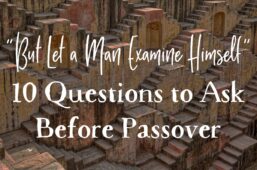Is Passover on the First Day of Unleavened Bread? – David C. Grabbe cgg.org
During Jesus Christ’s lifetime, two methods existed to determine the Passover: one by the people in their homes on Abib 14’s evening and the other by Temple priests on Abib 14’s late afternoon. The Gospels portray Jesus and His disciples observing the Passover in a private home at the onset of Abib 14, known as “the Last Supper.”
However, some Gospel verses seem to conflict with God’s Passover instructions. For example, Matthew 26:17 mentions “the first day of the Feast of Unleavened Bread,” which contradicts God’s command against work on this day. Yet, a closer examination of the Greek text suggests a different understanding. The word “protos” for “first” can indicate a preceding time rather than a specific day, suggesting the disciples’ inquiry happened before the Feast of Unleavened Bread began.
Similarly, Mark 14:12’s mention of the “first day of Unleavened Bread” can refer to the unleavened season’s start on Abib 13 rather than a specific day. The disciples’ question coincided with preparations for the Passover sacrifice, which took place during the unleavened bread season, not necessarily on the holy day.
Luke 22:7-8 reinforces this understanding, mentioning “the Day of Unleavened Bread, when the Passover must be killed,” occurring before the Passover. The Greek word “heeméra” for “day” can denote a general period or season, aligning with the Passover sacrifice’s timing within the unleavened bread season.
Therefore, Mark 14:12 and Luke 22:7 refer to the unleavened bread season’s beginning, not the specific holy day, resolving alleged contradictions and showing that Passover does not fall on the first day of Unleavened Bread.
#Passover #Gospel #BiblicalInterpretation #Timing
Report Story




